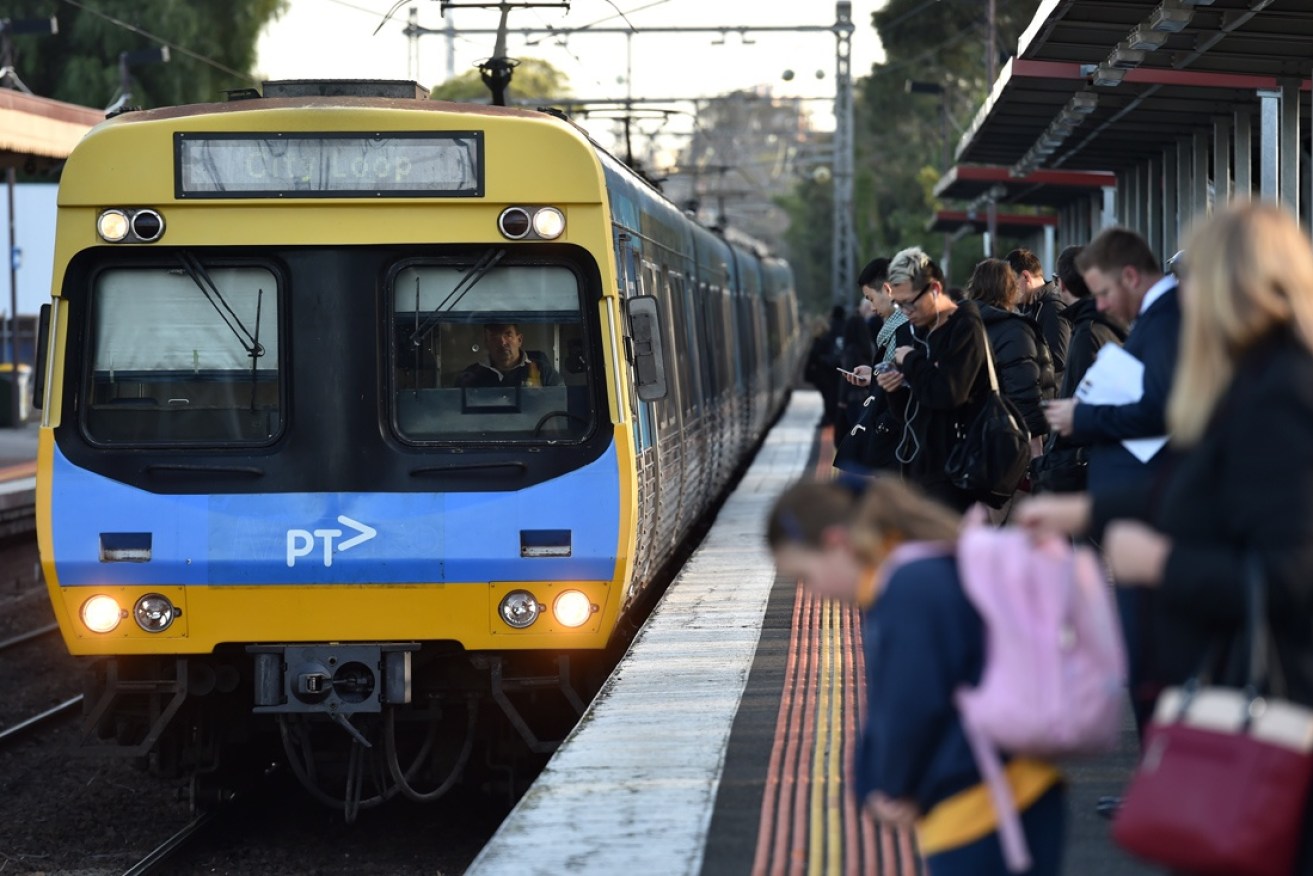Upgrading public transport is now doubly urgent


Public transport users were promised the world in this year's budget, but they'll be waiting a long time to see any improvement. Photo: AAP
Anthony Albanese has slammed the government for falling behind on rail infrastructure spending. He thinks we’ve been “conned” by the 2017 budget, and he may well be right.
The shadow infrastructure minister writes in The Australian that the government’s $10 billion National Rail Fund won’t invest a single dollar in public transport until “well after” the next federal election.
“There is no funding this year, next year or the year after that. Finally, in 2019-20, $200 million will be made available.”
The National Rail Fund needs to be spent far sooner, Mr Albanese says, because the need for public transport is “urgent”.
“Traffic congestion is a handbrake on economic growth and a misery for commuters.”
Agreed. As I argued recently, we are reaching a point where a slowing of immigration is going to become a political certainty – whether set in motion by the xenophobic calls of far right politicians or more rational calls from policy thinkers.
That’s not because Australia is ‘full’, but because we can’t pour hundreds of thousands of new Aussies into gridlocked cities. We can, however, fix the gridlock through public transport investment.
Voters must, somehow, be convinced that cities strangled by private vehicles cost everyone money – commuters waste time in traffic jams, business profits are eroded by snails-pace delivery runs, and governments lose the economic growth and tax revenue to keep building 21st century Australia.
In 2009, when oil prices were soaring and job insecurity was rife, Australians suddenly rushed back to public transport in a big way.
The train lines this columnist used in Melbourne’s western suburbs were so full that many trains didn’t even bother stopping at stations.
That’s worth recalling because Australians are about to be squeezed in similar ways.

We need to direct more national debt to the building of important public infrastructure like trains. Photo: Getty
Real wages are virtually flat, private debt is at record highs, and although interest rates and fuel prices are low-ish for the time being, both are expected to rise. Cost of living pressures will force the ‘marginal’ commuter back onto the train.
And don’t believe the headline hoopla we saw with Thursday’s jobs figures.
Headline unemployment may have fallen from 5.7 to 5.5 per cent in seasonally adjusted terms, but the more accurate trend numbers show no revival – hours worked (+0.18 per cent in May in trend terms) are growing just a whisker above population growth, and off a low base too.
So heeding Mr Albanese’s calls at the present time would achieve three things: bringing forward jobs creation, preparing our major cities for increased public transport patronage, and taking some of the pressure off our productivity-sapping congested roads.
But for that to happen, we must change the national debate from a narrative of being ashamed of national debt, to being proud of the world-class assets we use that money to build.
Change the debt debate
On Thursday, while Mr Albanese was attacking the Coalition’s infrastructure agenda, Shadow Treasurer Chris Bowen was making hay from the government “crashing through” the half-trillion-dollar mark in gross debt.
The ‘gross debt’ line is the same shallow politicking we saw during the ‘debt and deficit’ attacks on Labor by the Tony Abbott-led opposition from 2009 to 2013.
As economists tried to point out during those propaganda-driven years, gross debt doesn’t mean a lot in itself. It’s the net debt that counts – something Treasurer Scott Morrison has finally begun admitting this year.
But for some reason the Coalition got away for a long time with pretending that government assets such as new transport hubs, the NBN or better universities were next to worthless – it was only the gross debt raised to fund them that counted.
So Mr Morrison’s conversion is to be welcomed. We need to stop feeling anxious about a relatively small net debt (peaking at 19.8 per cent of GDP in a year’s time) and start celebrating making our cities and regions more liveable, more competitive and more prosperous.








